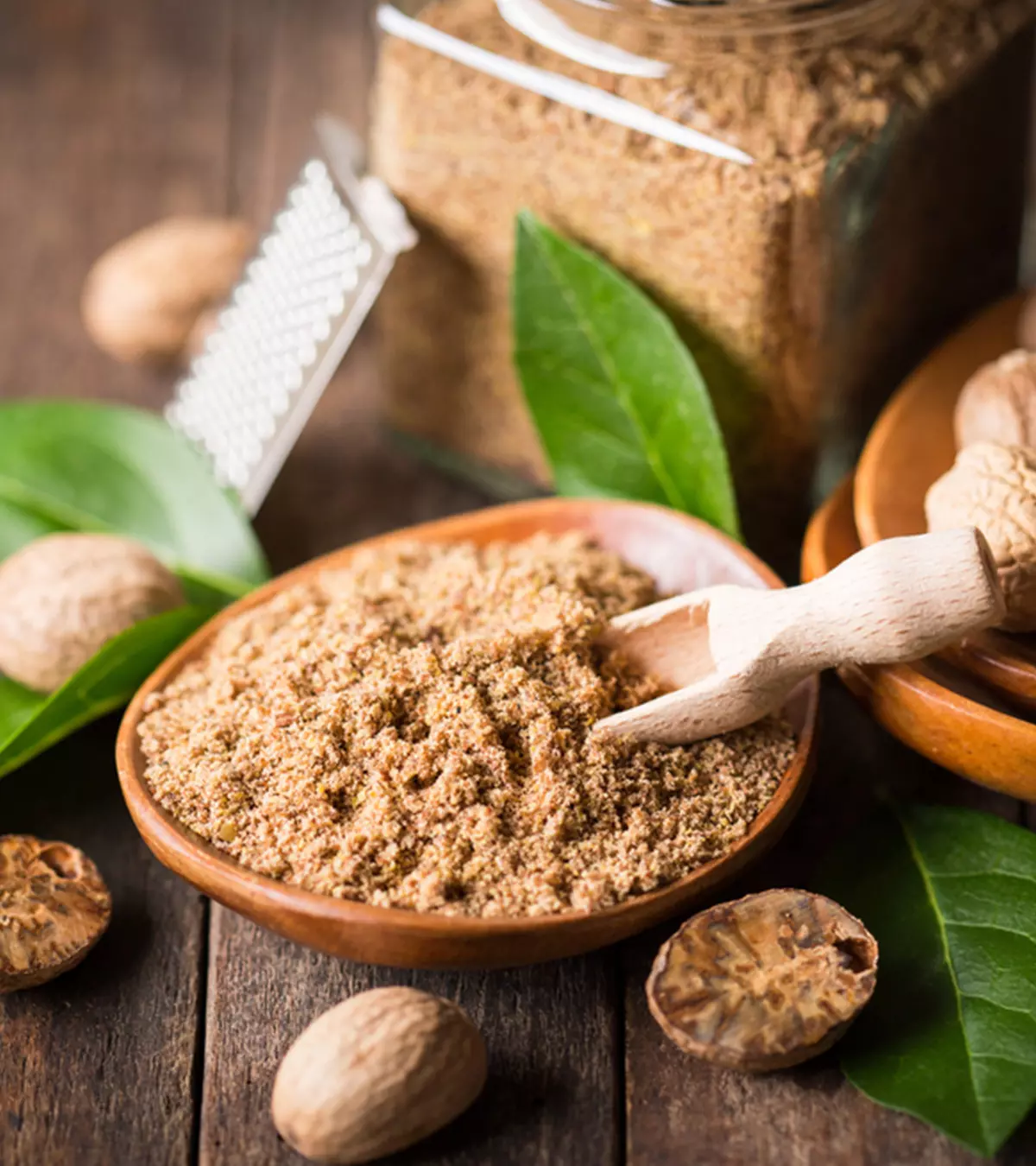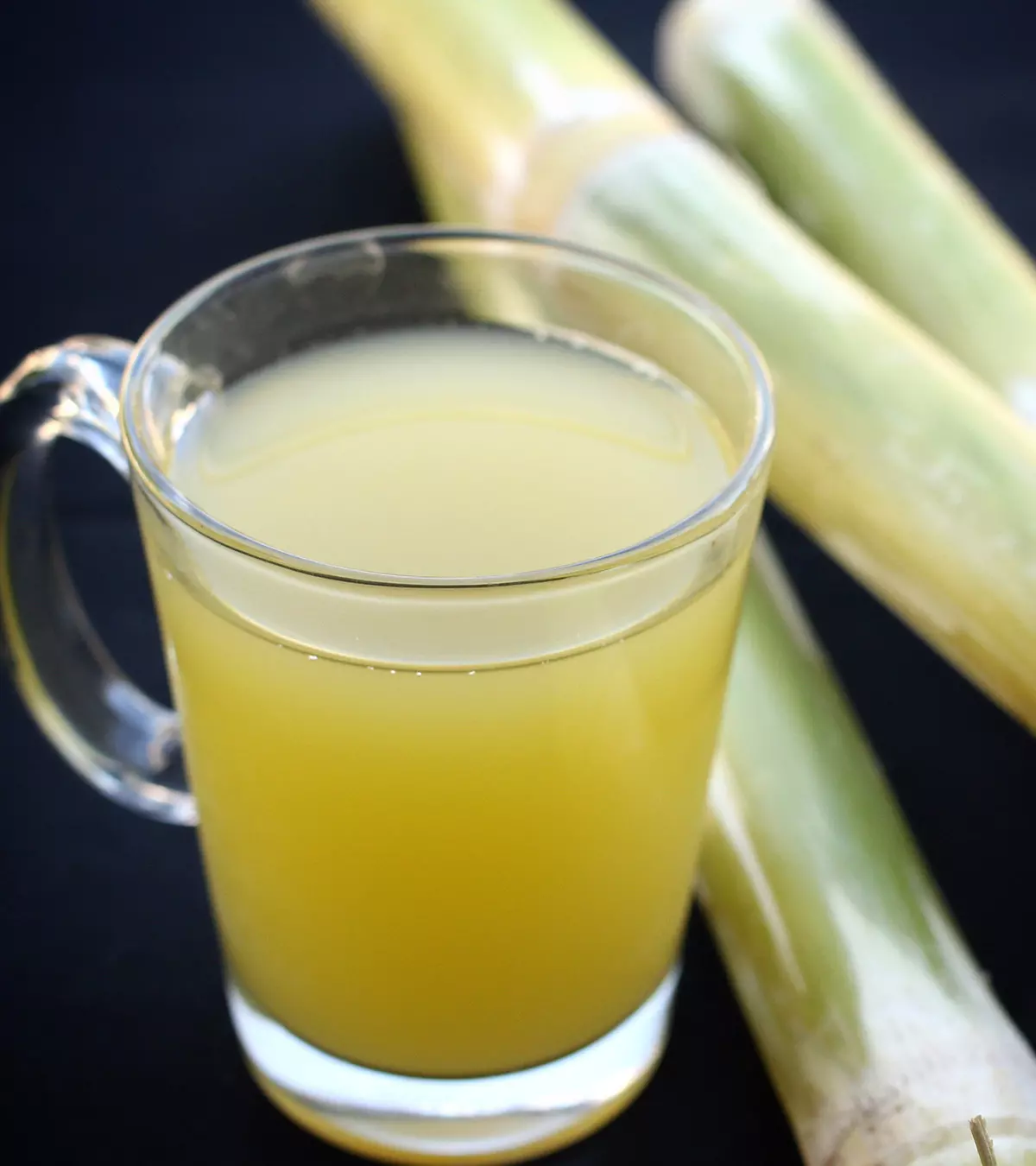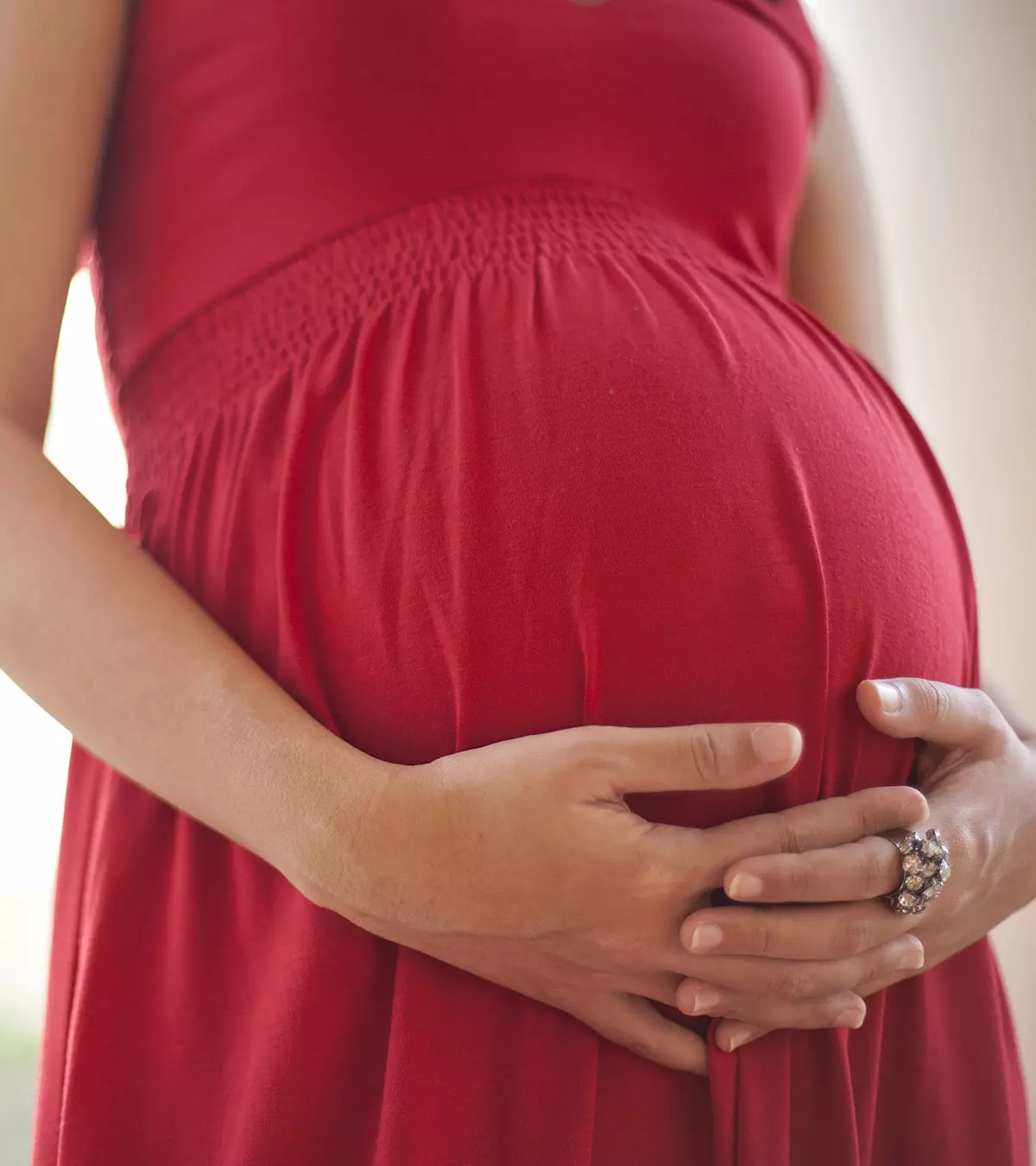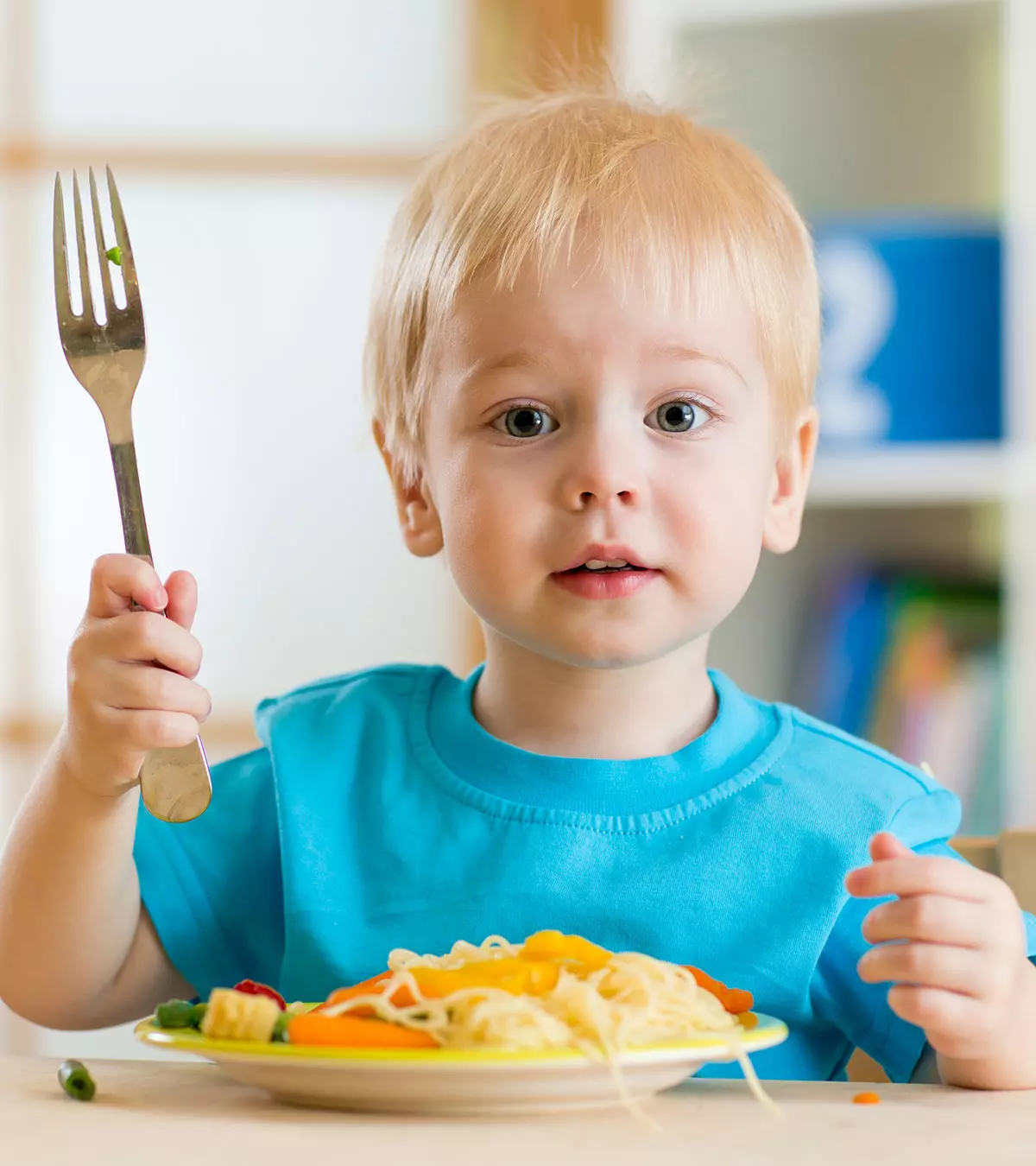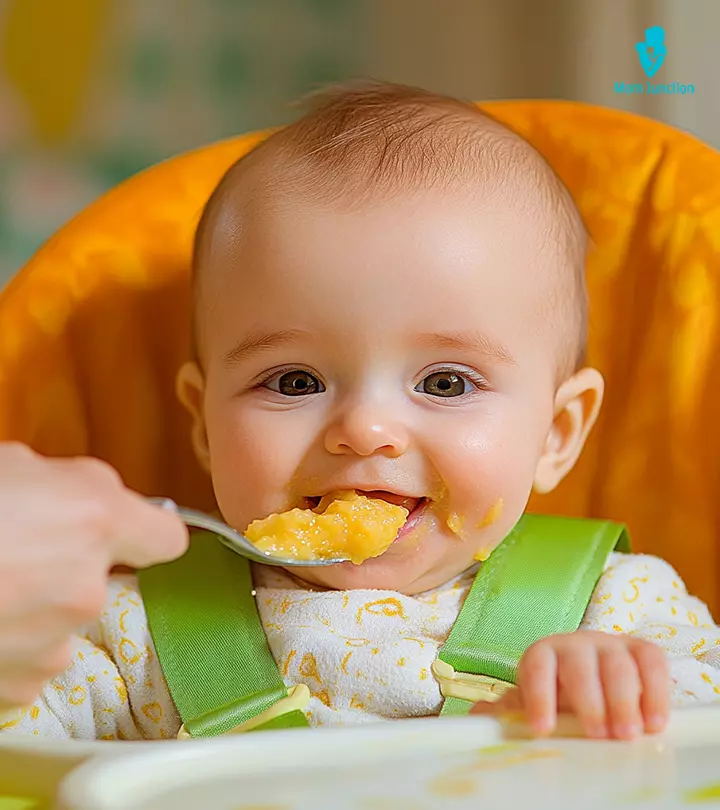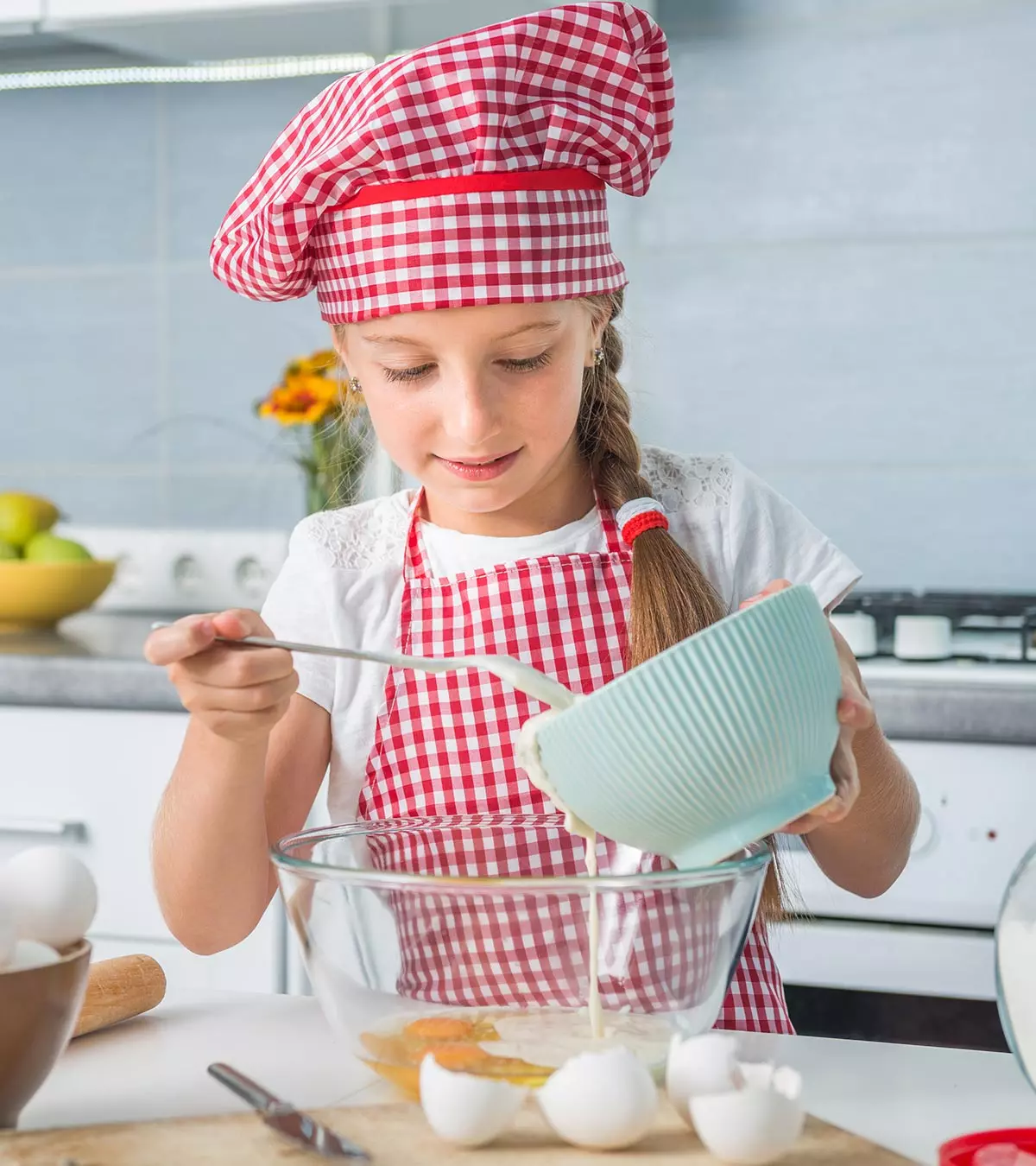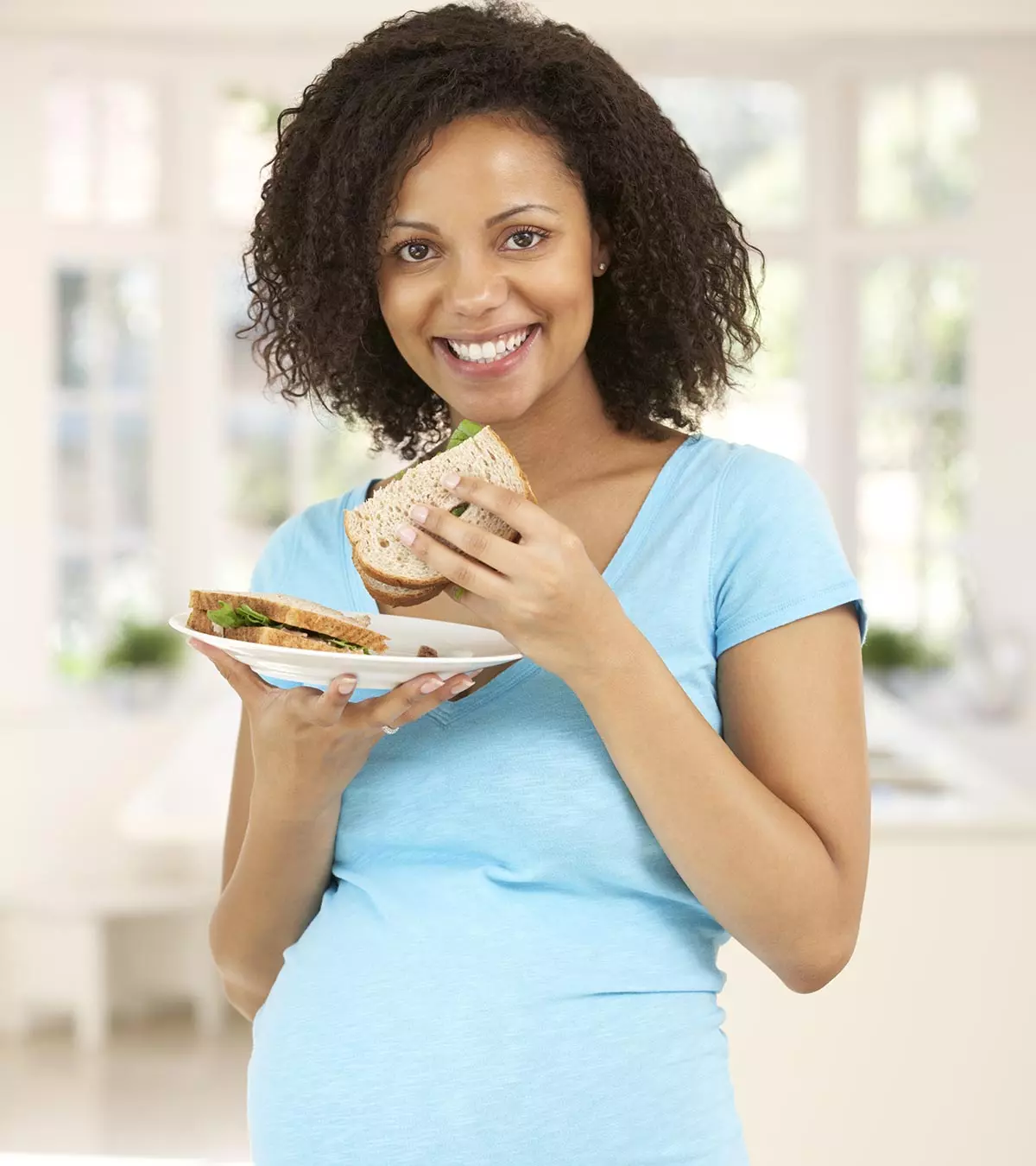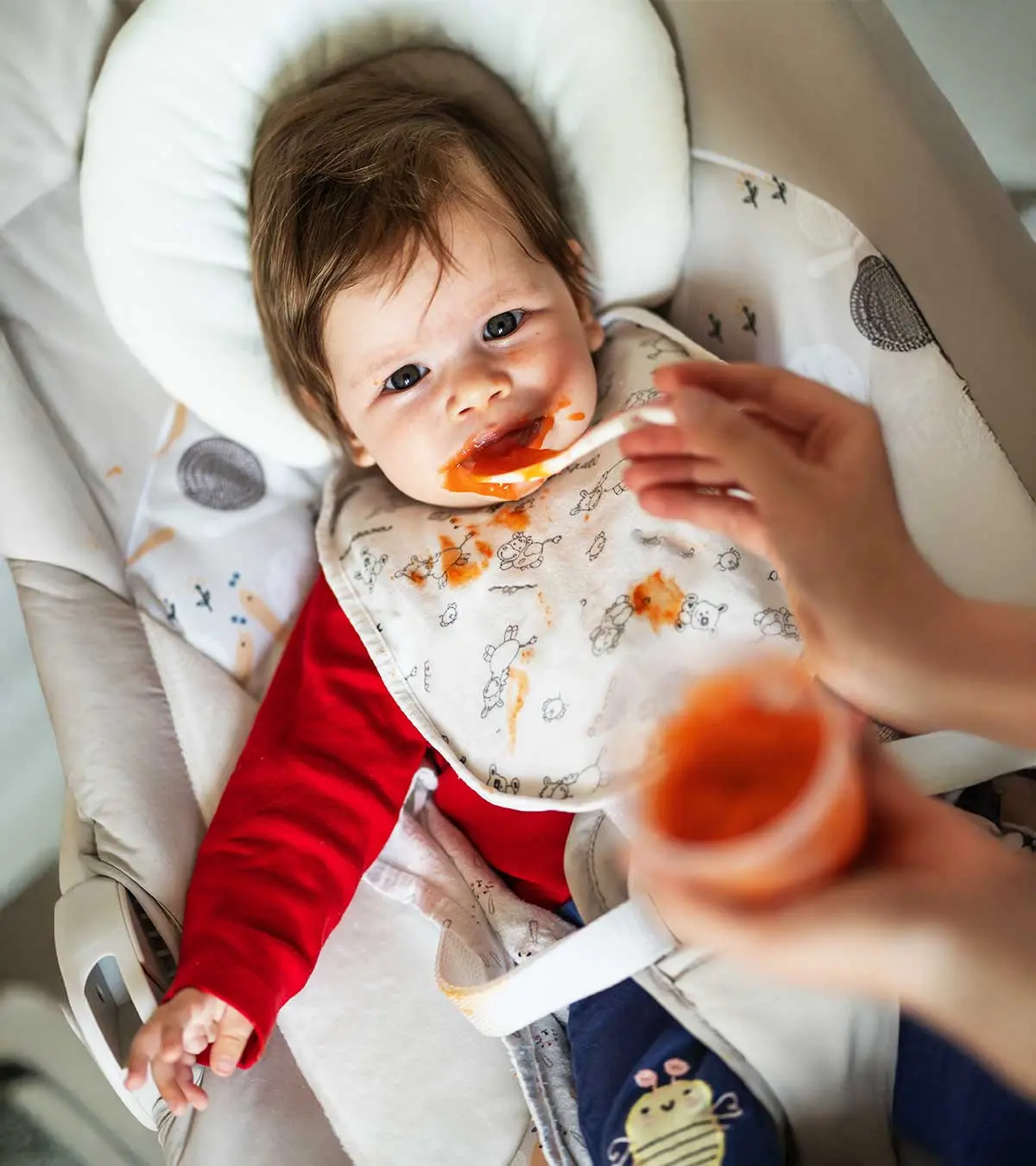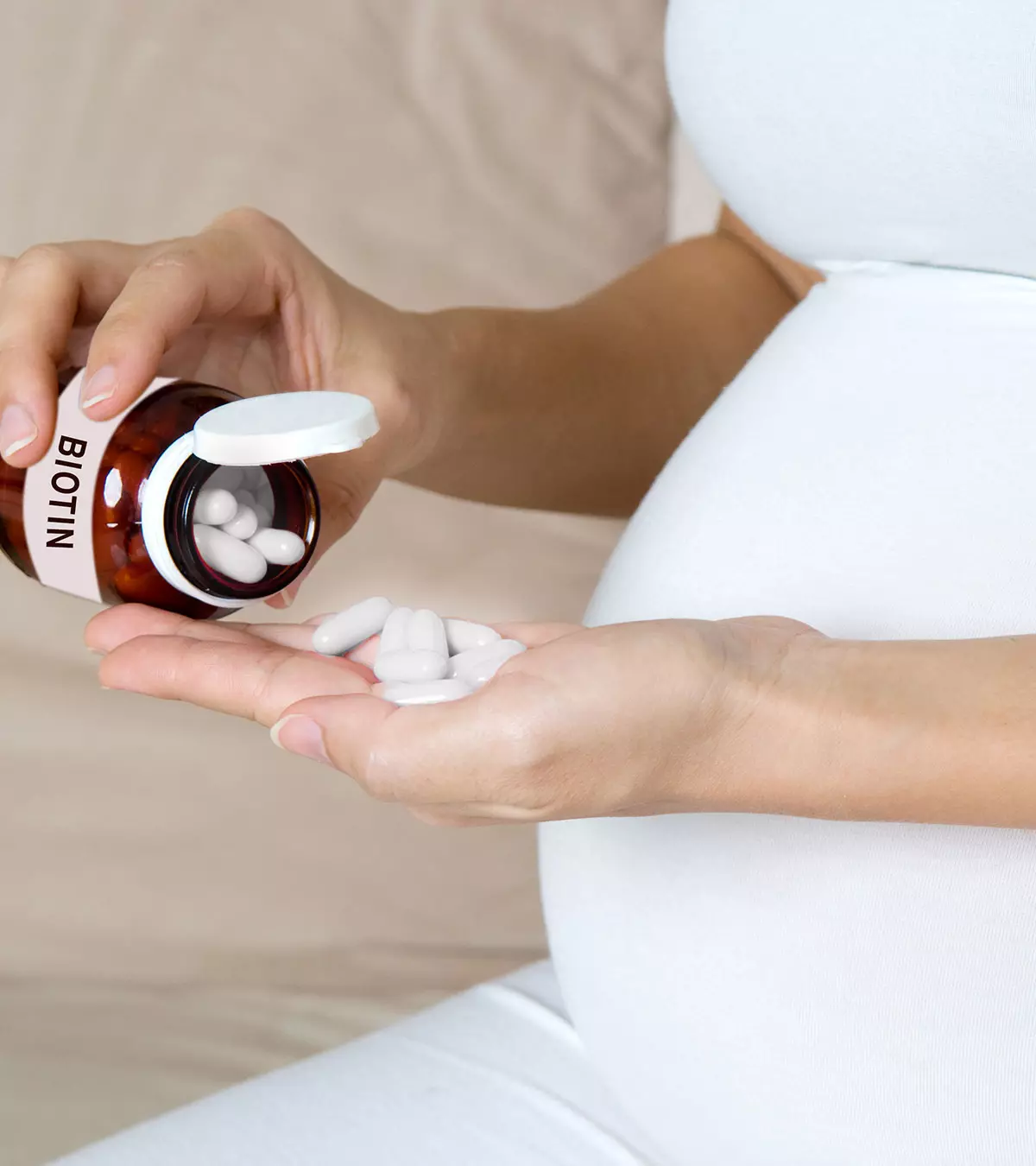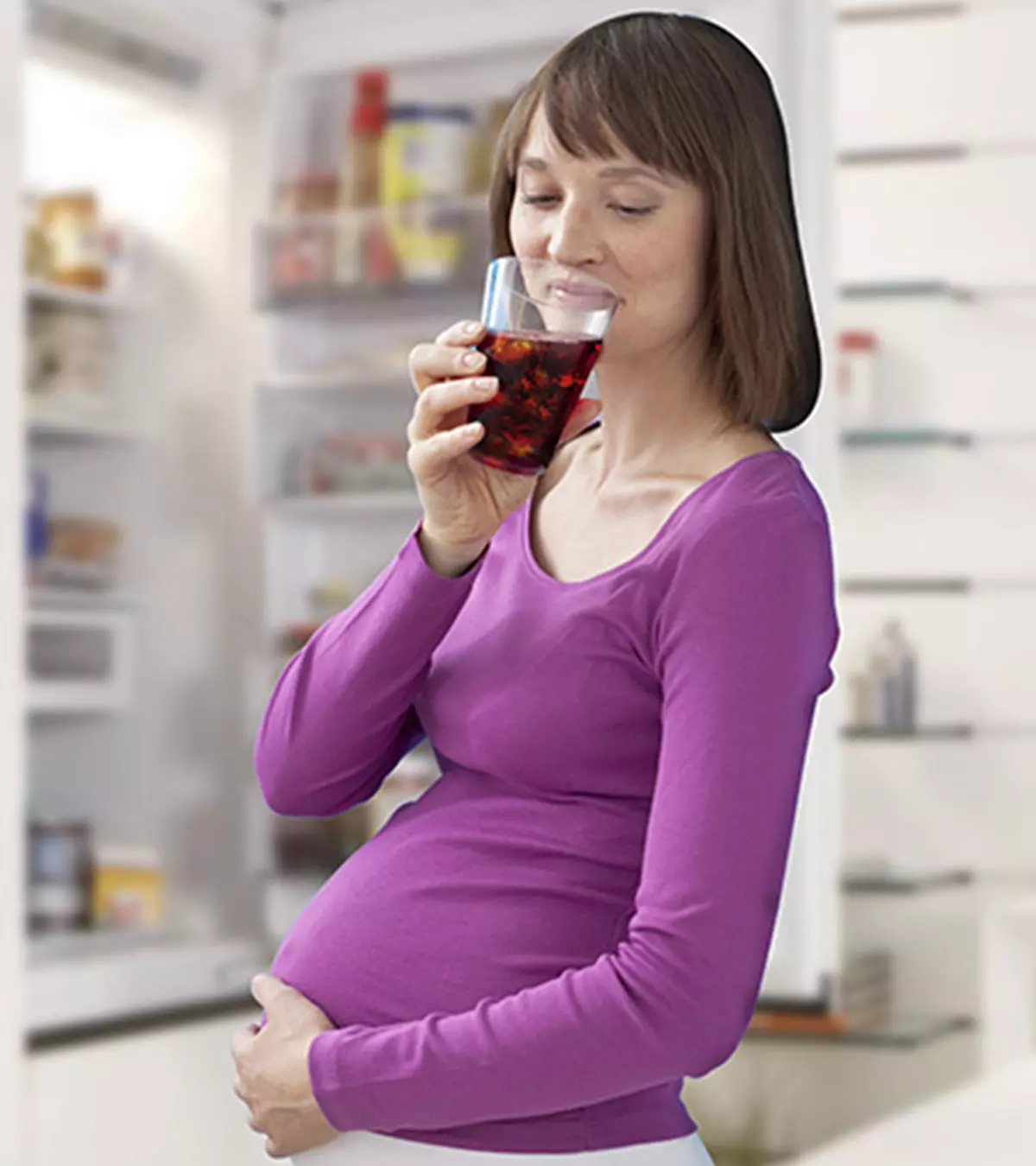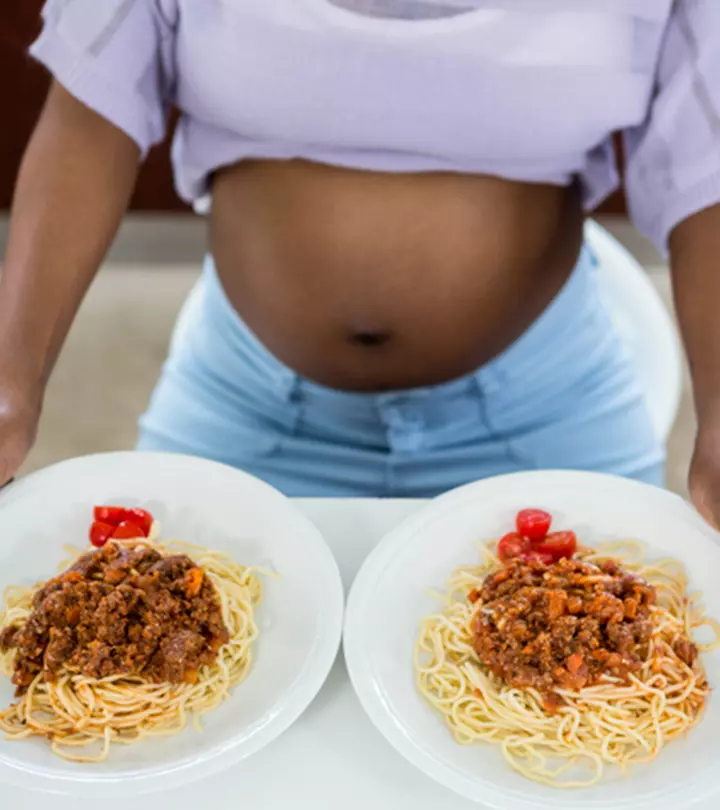
Image: iStock
Many women crave Chinese food during pregnancy but are worried about its effects on their baby’s health. Chinese food and traditions are also surrounded by many myths, such as eating crabs during pregnancy may cause you to give birth to a naughty baby, as the many legs of the crab symbolically represent naughtiness. However, the real reasons to avoid Chinese food during pregnancy are its high sugar and salt content and the addition of monosodium glutamate (a taste enhancer), which makes it unsuitable for consumption by expectant mothers. Moreover, consuming Chinese food may also increase the risk of getting bacterial infections. This post is a guide on why you should avoid Chinese food during pregnancy.

Key Pointers
- Consumption of Chinese food during pregnancy is not highly recommended due to high sodium levels.
- High sodium levels in Chinese food might lead to complications for the mother and the baby.
- MSG in Chinese recipes might hamper the nervous system development of the fetus.
- It’s best to prepare fresh recipes at home and consume them on the same day to satisfy your cravings and avoid complications.
Reasons To Avoid Chinese Food During Pregnancy
The high sugar content of sauces used in Chinese preparations makes it a no-no for pregnant women. The liberal usage of vinegar, especially in dishes like Sushi (which may include raw fish), also puts the cuisine under the nutrition scanner. Soy sauce and vinegar, used to make many Chinese rice items, are mostly salty and sweet. Furthermore, foods like fried rice have high-sodium soy sauce, and sweet and sour dishes contain added sugar, making them less healthy. Dietitians strongly discourage pregnant women from taking sodium and fats in their diet.

If Chinese women are eating Chinese during pregnancy and they still give birth to healthy babies, then why can’t we? One major culprit that brings all this bad name to Chinese foods is MSG or monosodium glutamate. It is a typical ingredient that is widely used for Indian Chinese preparations. Ajinomoto is the sodium salt of glutamic acid, a nonessential amino acid that is used to enhance flavors (1) (2).
 Quick tip
Quick tipCategorized as excitotoxiniChemical substances that cause overstimulation of neural networks in the brain , the consumption of MSG during pregnancy is not safe. MSG is potential enough to harm a growing brain and nervous system. Reports have indicated that MSG and aspartameiAn artificial food sweetener , another excitotoxin increasingly found in Chinese foods, readily crosses the placental barrier and over-stimulates the growing brain of the fetus. The excitatory neurotransmitteriChemical messengers in the brain that send signals throughout the body to carry out different functions in MSG can even cause autism, schizophreniaiA psychological disorder causing delusions, hallucinations, and impaired thinking and emotional processing and cerebral palsyiA neurological disorder affecting a person's muscle control, posture, and balance in the later years of life. The medical circles fear that an early exposure to MSG by these infants can cause a tendency to criminal behavior and episodic violence in the future (4).
Additionally, anecdotal studies have also associated the intake of MSG with obesity and changes in fetal and gestational weight gain. Thus, this ingredient offers no real nourishment.
An animal study evaluated the effects of MSG on serum sex hormones in female rats. According to the findings, oral administration of MSG to female rats during the oestrus phase (phase when a fertile) resulted in significantly higher progesterone levels than in the control group. Moreover, as depicted in the graph below, the rats treated with MSG exhibited comparatively lower estrogen levels, suggesting that MSG can affect female reproductive functioning.

Effect of MSG on serum sex hormone levels in female rats
Source: Effect of monosodium glutamate on serum sex hormones and uterine histology in female rats along with its molecular docking and in-silico toxicity; HeliyonA Complete Chinese Food Guide

The NSW Food Authority is a statutory government organization that helps ensure the food is safe and correctly labeled. The organization has listed a few foods as a complete no-no in a pregnant woman’s diet. They have also laid out clear dietary restrictions, classifying some foods to be had with caution while also giving a clear green signal to a horde of others.
 Point to consider
Point to considerOne of the major reasons to blacklist these foods is due to a higher chance of containing a lethal bacteria called listeria or salmonella. This concern is reinforced by a US CDC report, which presented the findings of a salmonella outbreak investigation in 2025.
According to the report, the outbreak resulted in illnesses in 39 individuals, leading to 15 hospitalizations. During the investigation, it was discovered that some of the affected individuals had consumed sushi and sashimi, indicating a possible connection between the contaminated seafood and the outbreak.
Below is a table that lists a few Chinese ingredients which, according to the NSW safety precautions, are better to avoid, have precautions, and are okay to have during pregnancy (6)
| Don’t Eat | Eat With Caution | Okay To Eat |
| Ham, salami and chicken (If cooked at 750 degree Celsius or more, you may eat)Any raw meat or other under cooked forms of poultry Refrigerated pate, meat spreads and sea food Store bought sushi Most forms of cheese ( not to be had unless cooked at 75 degrees or more)Fried ice cream, mayonnaise, pancake batter Prepared or prepacked salads, alfalfa sprouts, sunflower sprouts, soybean sprouts etc. | Take away chicken ( Ensure the leftovers are reheated to at least 60 degrees and had within the same day of preparation)Soft cheese, refrigerated should be had within two days of opening the pack Store bought custard Always eat leftovers stored in the refrigerator and eat within a day or two after reheating to at least 60 degree Celsius | Home cooked chicken, eaten on the same day of preparation. Home made sushi with fresh meatTofu, soy yogurt etc. after checking the use by date labels. Follow storage instructions |
Frequently Asked Questions
1. What is the Chinese Restaurant Syndrome?
A syndrome characterized by symptoms such as headache, flushing, abdominal pain, and sweating, seen in individuals sensitive to eating Chinese food containing monosodium glutamate (1).
2. Does craving Chinese food indicate a specific baby gender?
The common belief is that craving salty foods (such as Chinese foods) may indicate a male gender. However, no scientific evidence supports this idea, and cravings may indicate a need for certain nutrients or minerals (2).
3. Can I eat Chinese fried rice while pregnant?
You can occasionally enjoy Chinese foods such as fried rice when prepared at home with healthful and safe ingredients such as finely chopped fresh vegetables, homemade sauces, and minimal oil. However, moderation is key to preventing any undesirable reactions. Dr. Laila Kaikavoosi, a UK-based general practitioner and hormone specialist, says, “When taken carefully, Chinese food, like any other cuisine, may be part of a healthy pregnancy diet. To limit the risk of foodborne disease, choose well-cooked dishes and avoid raw or undercooked items. Make sure your meals contain a variety of nutrients.”
Due to the myriad cravings for various food choices, while pregnant, it is common that you may also feel like trying Chinese food during pregnancy. Ideally, it is best to avoid Chinese due to the high salt, spice, and sugar content, along with ingredients such as Ajinomoto or monosodium glutamate in these foods. These components could lead to pregnancy-related complications for your fetus. However, if you cannot resist eating Chinese during pregnancy, you may try safer options and ideally prepare them at home to suit your eating habits and taste preferences.
Infographic: Why Should You Avoid Chinese Food During Pregnancy?
It is generally recommended that pregnant women pay attention to their diet and avoid or limit certain foods to ensure their and their baby’s health and well-being. While some Chinese foods may be healthy and nutritious, others may not be suitable for pregnant women due to their potential risks or adverse effects. The infographic below lists different ingredients and explains why certain Chinese foods are unsafe for would-be moms.
Some thing wrong with infographic shortcode. please verify shortcode syntax
Illustration: Chinese Food During Pregnancy: Why You Should Avoid?

Image: Stable Diffusion/MomJunction Design Team
References
- Himmatrao S.B. et al., (2017); Chinese Restaurant Syndrome.
https://www.ncbi.nlm.nih.gov/pmc/articles/PMC5278591/ - Gender, positions and cravings in pregnancy: truth or myth.
https://www.nct.org.uk/information/pregnancy/body-pregnancy/eating-pregnancy-and-after-birth - Mahfoudh A.M. Abdulghani et al.; (2025); Effect of monosodium glutamate on serum sex hormones and uterine histology in female rats along with its molecular docking and in-silico toxicity.
https://www.sciencedirect.com/science/article/pii/S2405844022022551 - Foods to eat or avoid when pregnant.
https://www.foodauthority.nsw.gov.au/consumer/life-events-and-food/pregnancy/foods-to-eat-or-avoid-when-pregnant#.VQJz8Y6Ue08 - Pregnancy Heartburn? 7 Ways to Get Relief.
https://intermountainhealthcare.org/blogs/pregnancy-heartburn-7-ways-to-get-relief - Foods to eat or avoid when pregnant.
https://www.foodauthority.nsw.gov.au/consumer/life-events-and-food/pregnancy/foods-to-eat-or-avoid-when-pregnant#.VQJz8Y6Ue08
Community Experiences
Join the conversation and become a part of our nurturing community! Share your stories, experiences, and insights to connect with fellow parents.
Read full bio of Shivani Sikri
- Dr. Laila Kaikavoosi graduated from King's College London Medical School in 1999. She completed her General Practice training in London and gained membership in the Royal College of General Practitioners in 2007. Dr. Kaikavoosi is a Diplomat of the Faculty of Reproductive and Sexual Health. She practiced and trained in teaching hospitals in the UK and USA.
 Dr. Laila Kaikavoosi graduated from King's College London Medical School in 1999. She completed her General Practice training in London and gained membership in the Royal College of General Practitioners in 2007. Dr. Kaikavoosi is a Diplomat of the Faculty of Reproductive and Sexual Health. She practiced and trained in teaching hospitals in the UK and USA.
Dr. Laila Kaikavoosi graduated from King's College London Medical School in 1999. She completed her General Practice training in London and gained membership in the Royal College of General Practitioners in 2007. Dr. Kaikavoosi is a Diplomat of the Faculty of Reproductive and Sexual Health. She practiced and trained in teaching hospitals in the UK and USA.
Read full bio of Ria Saha
Read full bio of Swati Patwal
Read full bio of Dr. Joyani Das







